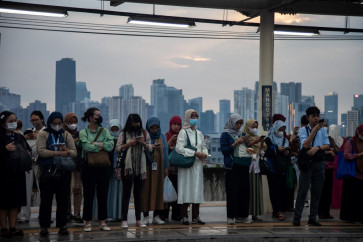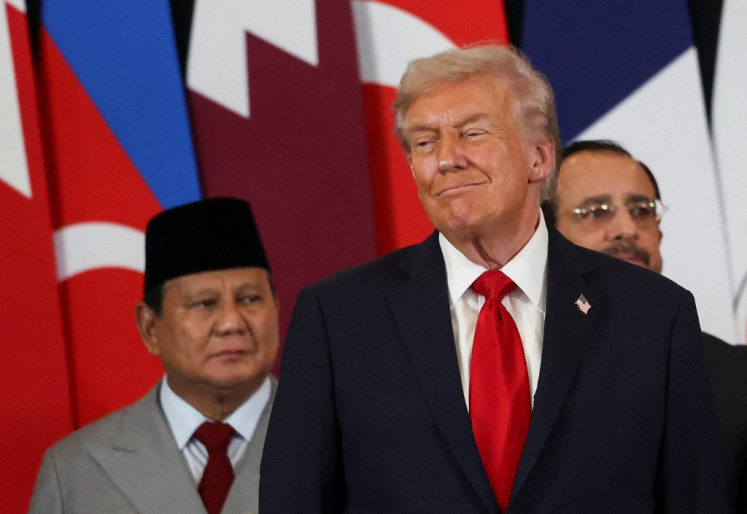Popular Reads
Top Results
Can't find what you're looking for?
View all search resultsPopular Reads
Top Results
Can't find what you're looking for?
View all search resultsNo room for complacency, more work ahead for RI
Economic surveys by an intergovernmental organization concluded that Indonesia needs to create more room in its budget by phasing out inefficient energy subsidies and reforming social policies to improve sustainable economic growth
Change text size
Gift Premium Articles
to Anyone
E
conomic surveys by an intergovernmental organization concluded that Indonesia needs to create more room in its budget by phasing out inefficient energy subsidies and reforming social policies to improve sustainable economic growth.
“Subsidies do not achieve their primary objectives because they are not efficient in targeting vulnerable social groups,” Organisation for Economic Co-operation and Development (OECD) secretary-general Angel Gurria said Monday during the launching of Economic Survey Indonesia and Investment Policy Review Indonesia.
Significant budget resources could be maintained by reducing inefficient subsidies — resources which in turn could help develop infrastructure and human capital in Indonesia, he added.
“The [Indonesian] authorities have committed to gradually reducing energy subsidies, including the full elimination of the fossil fuel component by 2014,” Gurria said in a prepared statement.
He also indicated the government might consider removing electricity subsidies.
Finance Minister Agus Martowardojo said in his speech that the government was keen to reduce Indonesia’s dependency on fossil fuels and replace it with clean and renewable energy.
“We would like to erase or unwind the subsidies within five years, especially for fuel,” Agus told journalists, adding that the government would also like to reduce fertilizer and electricity subsidies within three and five years respectively.
Besides cutting inefficient subsidies, the survey also suggested Indonesia could help support fiscal stability by reforming social policies, such as public health coverage.
The survey found Indonesia was still lacking in health-care spending compared to other Southeast Asian countries and the OECD level.
Indonesia allocated budget funds worth 2.2 percent of GDP for the health sector in 2007, while the Southeast Asian average stood at 4.1 percent.
With the growth of income and changes in Indonesia’s demographic structure, demand for more sophisticated health-care services would put additional pressure on the budget in the future, the report said.
“Reforms [in the health sector] should also be directed at promoting participation in the private health insurance scheme,” Gurria said, adding that Indonesia would also need to consider labor policy reform because of the significant size of the informal labor market.
“Workers are vulnerable because they are insufficiently insured against the risk of employment loss,” he said, adding that the OECD recommended a two-pronged strategy of introducing some form of unemployment benefits while reforming the employment law — in particular by reducing severance payment requirements.
The report reasoned that labor market reform was increasingly urgent as the population ages, and essential for the establishment of a future unemployment insurance system.
Regarding Indonesia’s investment review, the OECD reported that Indonesia had recorded impressive achievements in opening its economy to foreign investment, helping the country weather the global crisis.
The survey suggested that Indonesia should reduce its foreign direct investment restrictions and continue simplifying its business permit procedures. (map)










